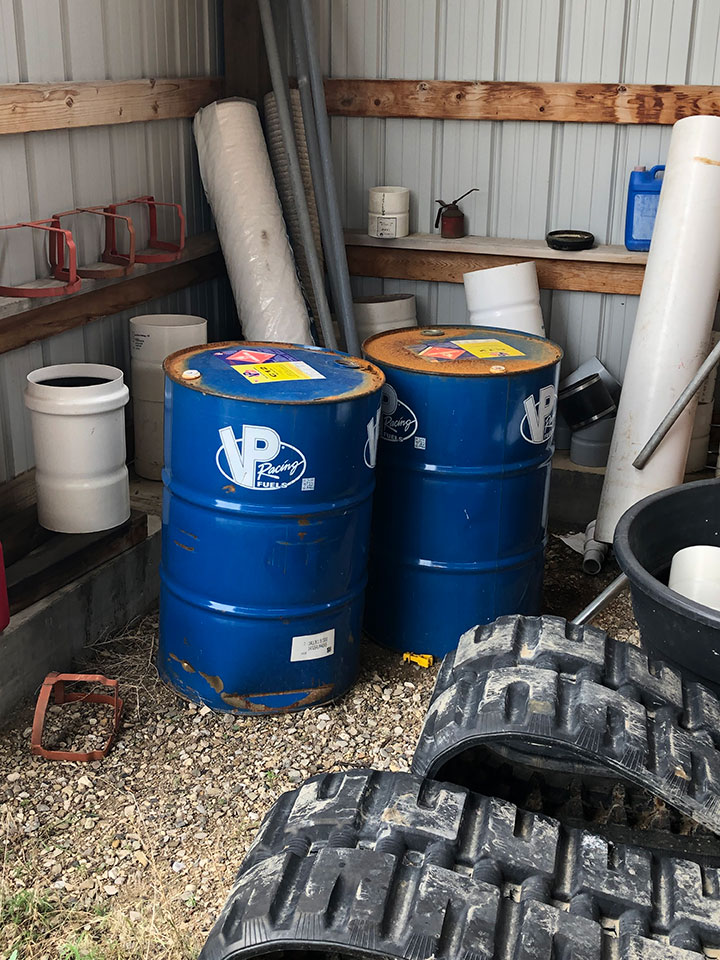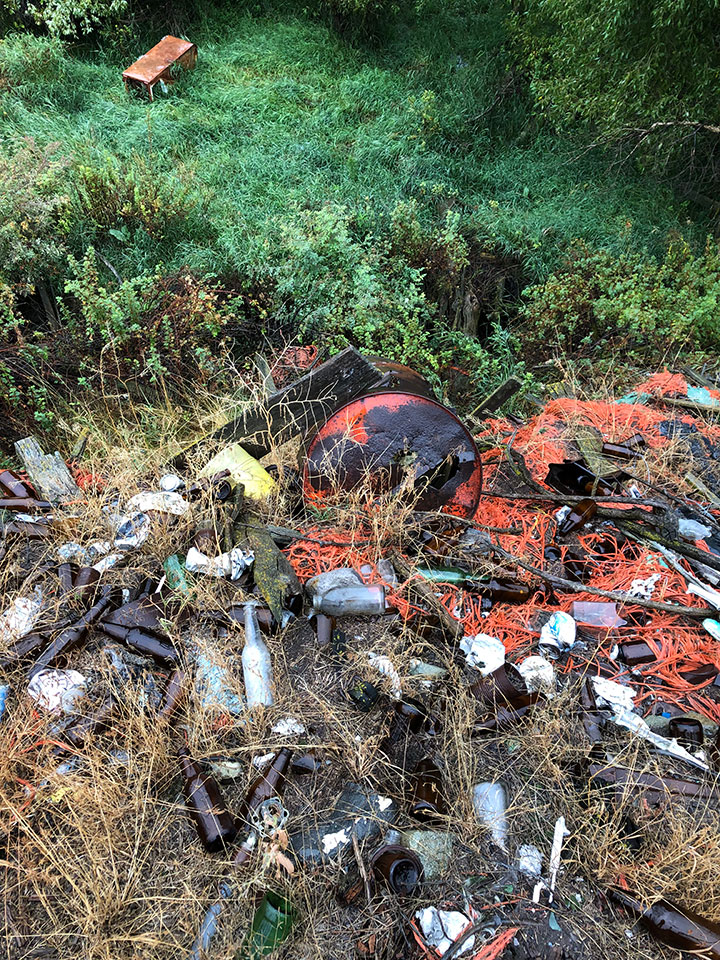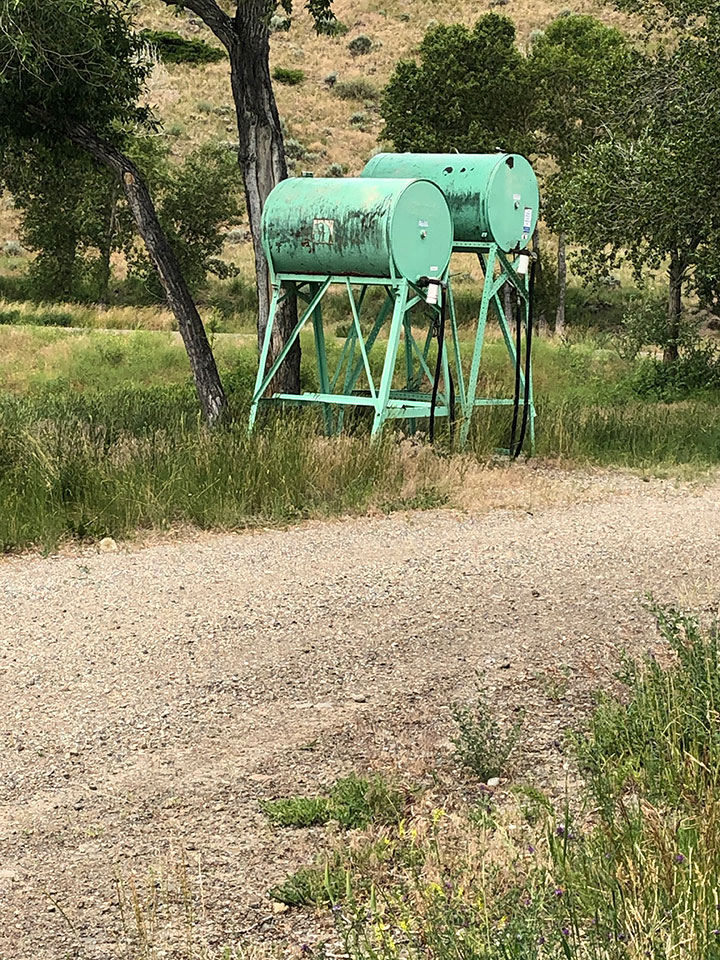

Does Your Residential Property Have Environmental Issues?
Our colleague and environmental scientist Breanne Carr wrote an article about some ways to know if your commercial property needs a Phase 1 Environmental Site Assessment. She highlighted some key considerations that might determine whether an environmental assessment is necessary before purchasing commercial property.
In addition to being very informative, this article got us thinking about environmental issues associated with residential or non-commercial properties. What if you’re not buying a business but buying a house or vacant property? Should you be concerned about whether the property might have environmental issues, as you might be on a commercial property? Should you hire a professional to look at the property? The answer is usually…maybe.
Hazardous Materials Can Be Anywhere
The overall risk of a property having environmental issues that could affect its value or result in expensive cleanup activities is greater on a commercial property than on a non-commercial property like a residence. That is simply because past land use in a commercial setting is much more likely to have resulted in environmental impacts from activities on the property itself or adjacent commercial properties.
Commercial operations often use and store things that are potentially harmful to the environment, and sometimes those things spill (or get dumped), resulting in environmental impairment. Banks and mortgage companies recognize this reality, which is why they often require an environmental assessment prior to approving a loan on a commercial property.
But even though the risk of environmental impairment on non-commercial property may be lower than on commercial property (relatively speaking) that does not mean there is no risk. People can store, use, and spill hazardous materials anywhere.
Does My Property Have Environmental Issues?
So how do you know if a non-commercial property will likely have environmental issues? Are you going to hire an environmental professional to conduct a full-blown Environmental Site Assessment if your bank does not require it? For most, the answer is probably no. That’s one more expenditure at a time when you’re already maxed out on spending for the required things.



However, there are some things you can do on your own that might help you to assess whether a property might be environmentally impaired and whether using the services of a professional might be a good investment.
There are two major focus areas in assessing whether a property might be environmentally impaired: The condition of the property itself and the other is the condition of surrounding properties. You can do a little reconnaissance in the following areas to assess the general nature of the area:
- Start by looking at general housekeeping. Is the property well kept up, clean, and neat, or does it appear to be on its way to becoming a junkyard?
- What about adjacent properties? Like first impressions can belie a person’s true character, it is with properties. Of course, physical junk does not always equate to environmental impairment, but there is often a close correlation. The lesson here is: If you see something that looks like it could be an environmental contaminant, ask your Realtor about it.
- Follow up by piecing together a historical narrative of the site and vicinity. For example, determine how long the area has been developed. What kinds of activities may either be taking place now or may have taken place in the past, and are any of those activities likely to have resulted in environmental impairment?
Some key things to look for include:
- Signs of commercial activity (even in residential areas)
- Barren lots that may have had structures removed
- Evidence of unusually disturbed ground
- Chain link fencing that seems to be surrounding otherwise open areas
- No Trespassing signs
- Visible environmental wells (typically indicated by a steel pipe sticking a few feet out of the ground).
While none of these features necessarily indicate actual environmental problems, their presence or absence can contribute to understanding the broader setting and history of the property and vicinity.
Finally, look for specific indications of actual sources of environmental contamination on the property or in the area. As you walk through the property, ask yourself if any of these situations are present:
- Are there larger quantities of fuel, oil, or chemicals on the property, such as bulk fuel tanks or waste oil drums?
- Does the property have any sumps or floor drains in outbuildings that might improperly discharge contaminants?
- Are there nearby commercial operations that may have hazardous materials (for example, gas stations, auto repair shops, machine shops, dry cleaners, paint stores, etc.),
- Do any properties in the immediate area have visible fuel tanks, drums or vats?
Potential sources of environmental problems may be right out in the open and visible. Remember that even though some of these things are present, they may not have resulted in environmental impacts.
What’s Next?
In most cases with non-commercial property, these observations will confirm that the property is probably not likely to be contaminated, and afford you, the buyer, some comfort in moving forward.
But if your observations reveal that all might not be right with the property, you may want to consider consulting an experienced environmental professional. Not only will they understand what additional resources are available to identify potential past and current environmental issues, but they can often identify which of those issues are likely to impact the property and how serious the impact might be.
Environmental professionals can also offer you valuable insight into what steps you might take to resolve any issues before you finalize your purchase. That is important because it can play a part in understanding potential financial liabilities with the property. It might be as simple as providing some context to your observations, or in other cases, there may be a valid reason to do more investigation.
You may rest a little easier knowing you have done at least a basic due diligence on your purchase. If you have questions or would like help mapping out your property evaluation process, please contact us.
Contact us for more information
